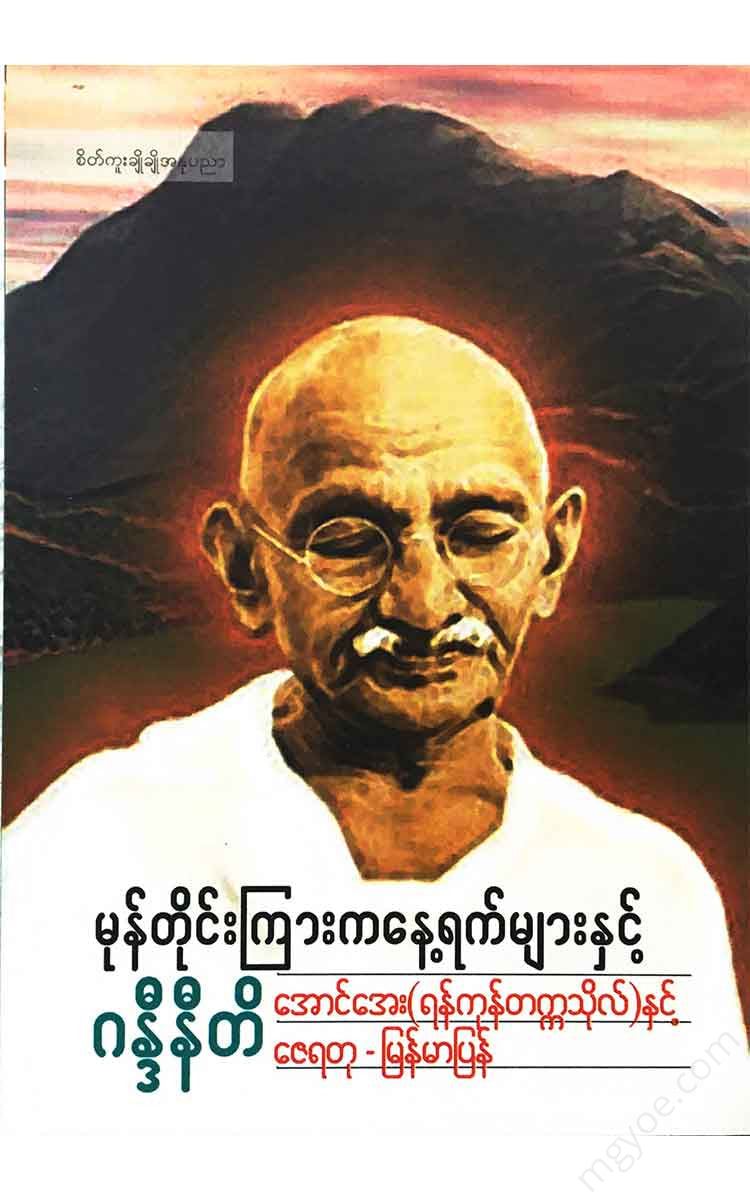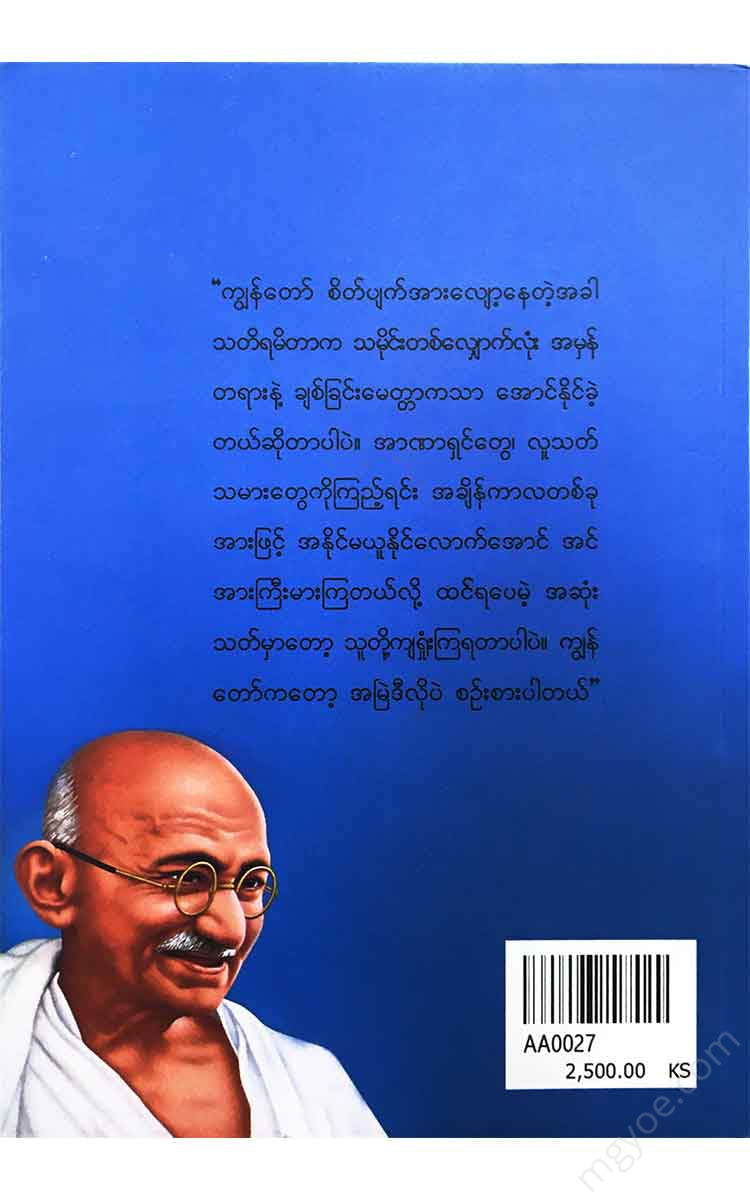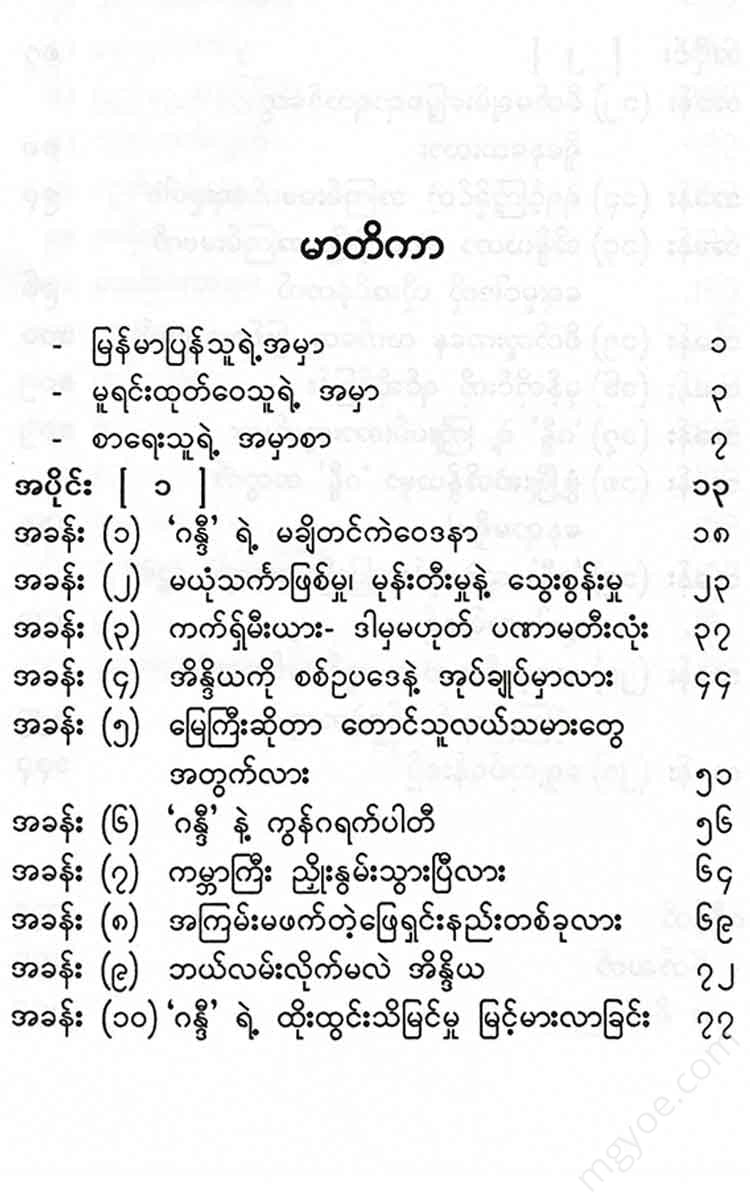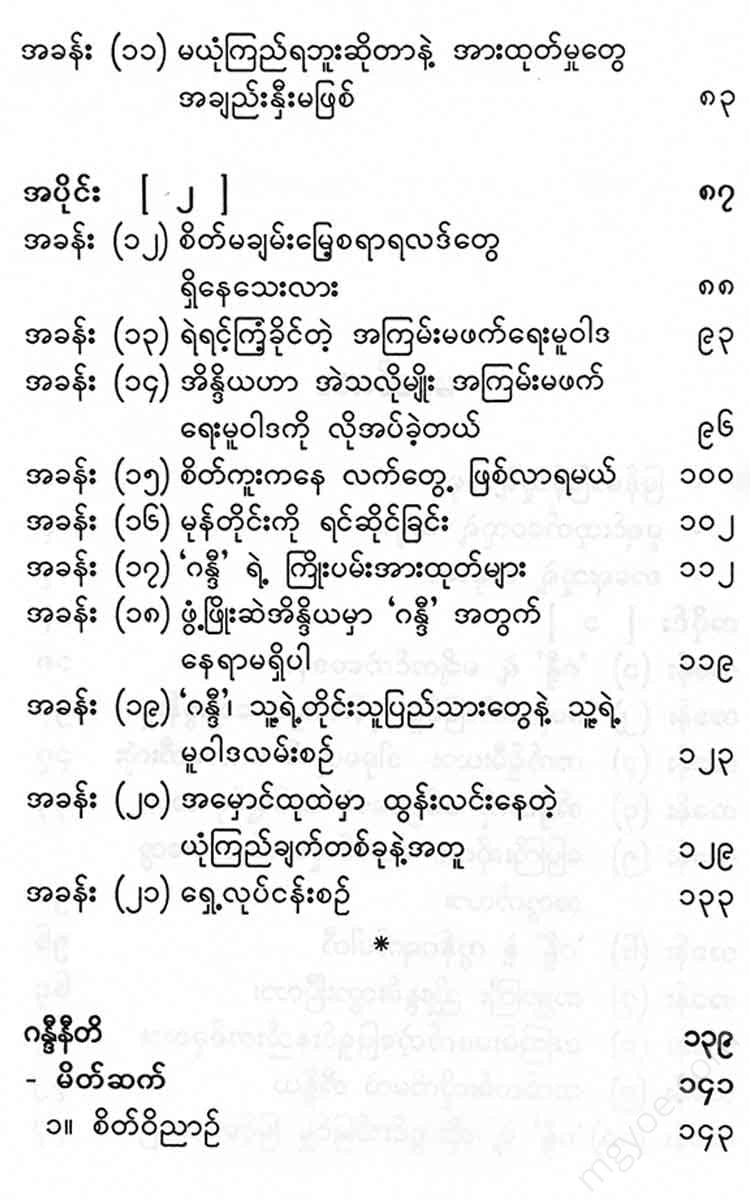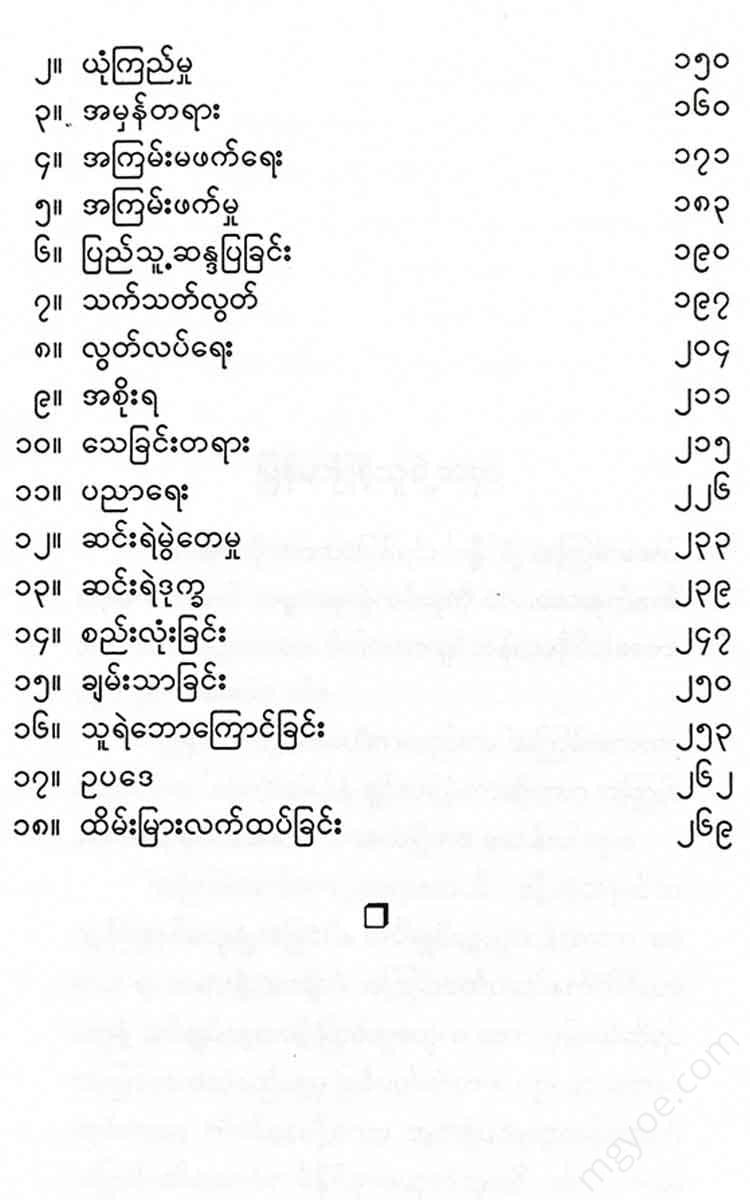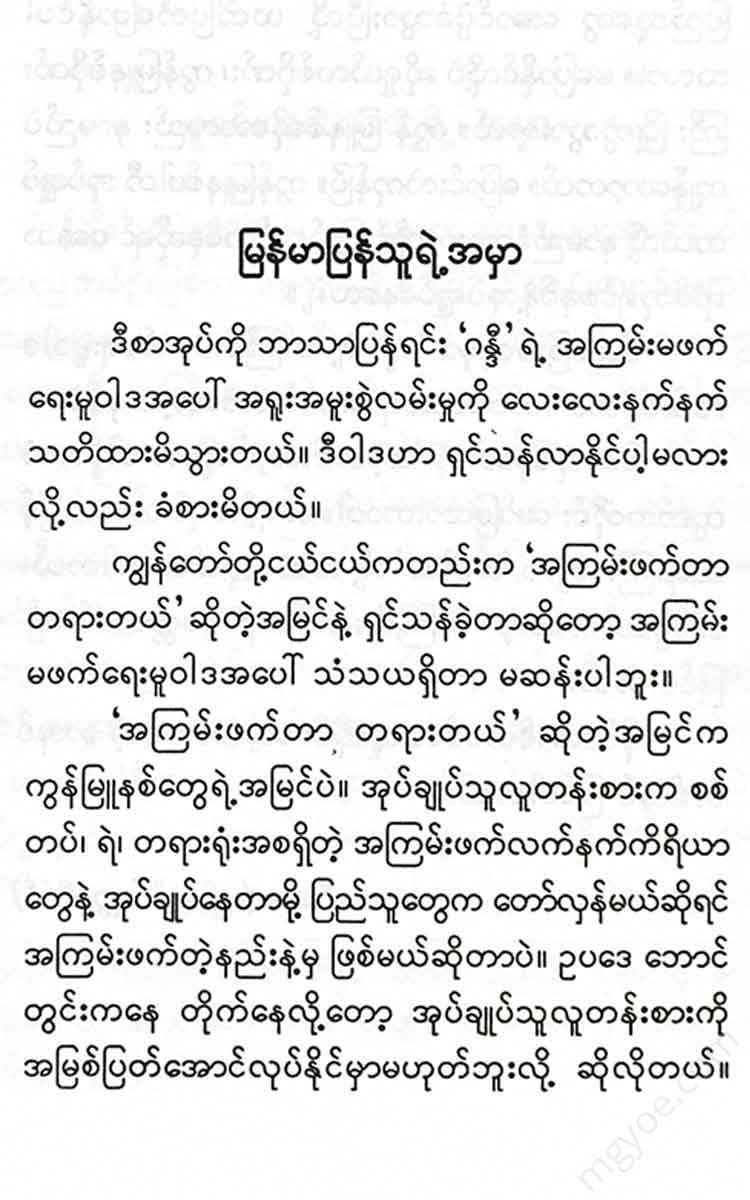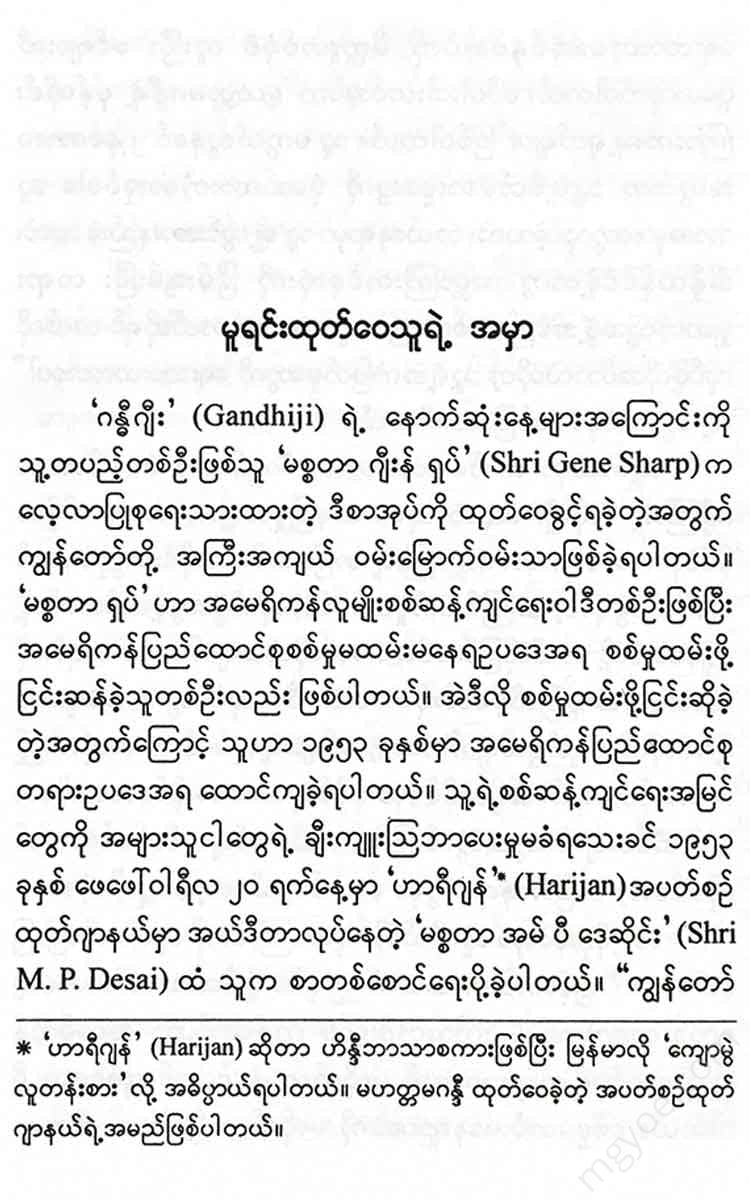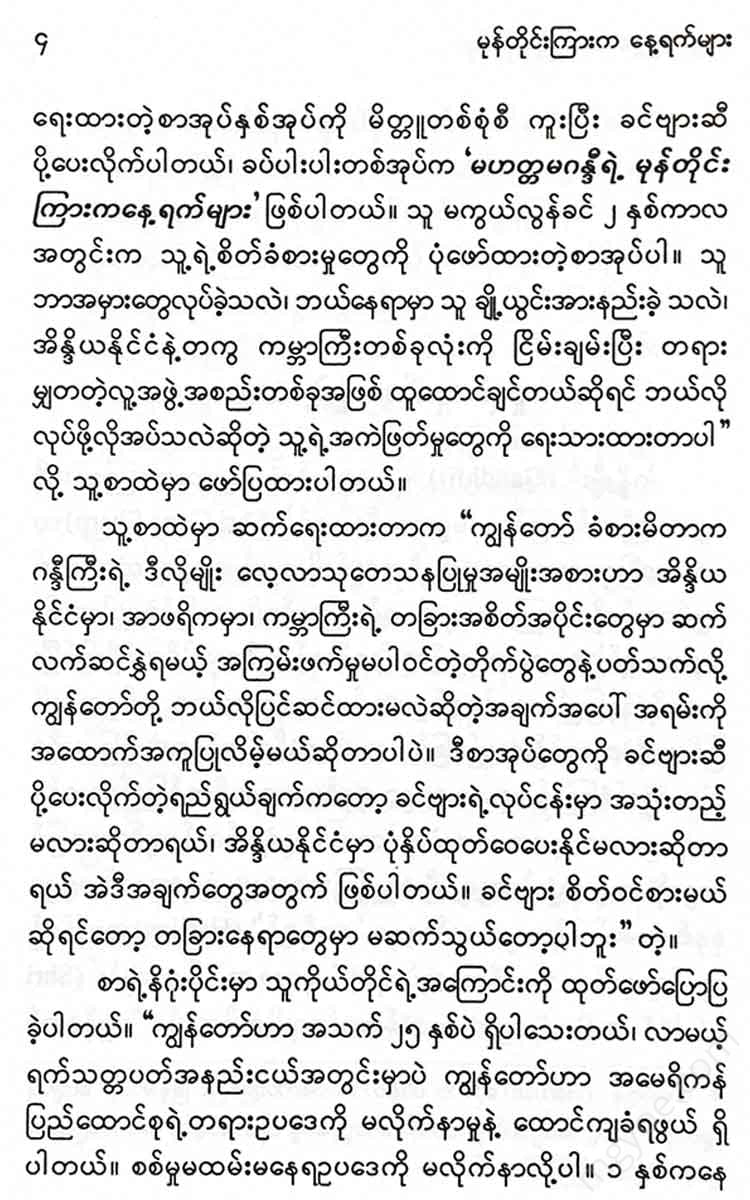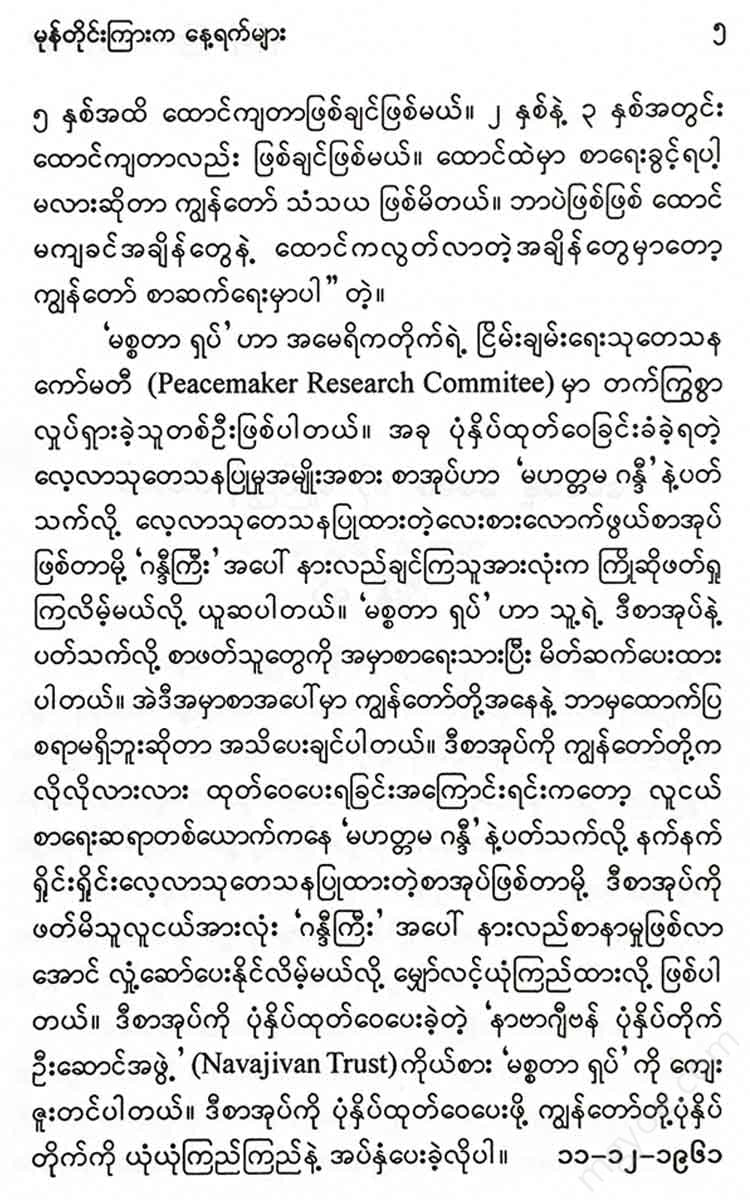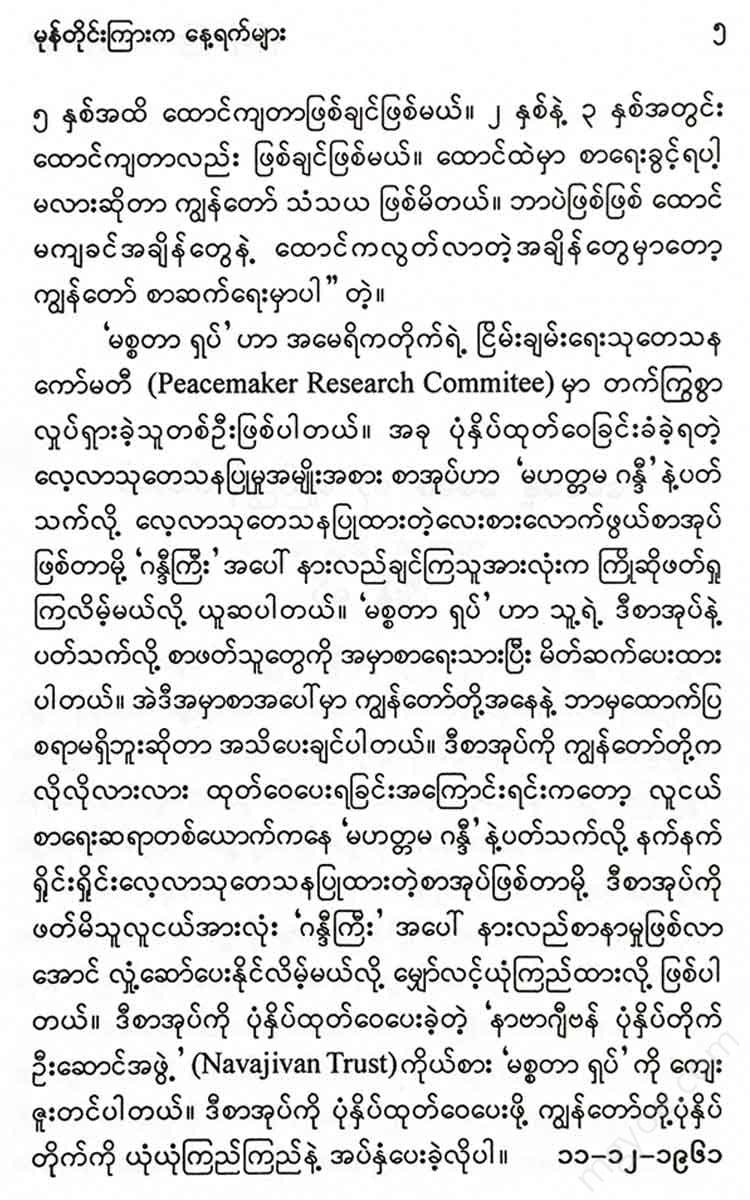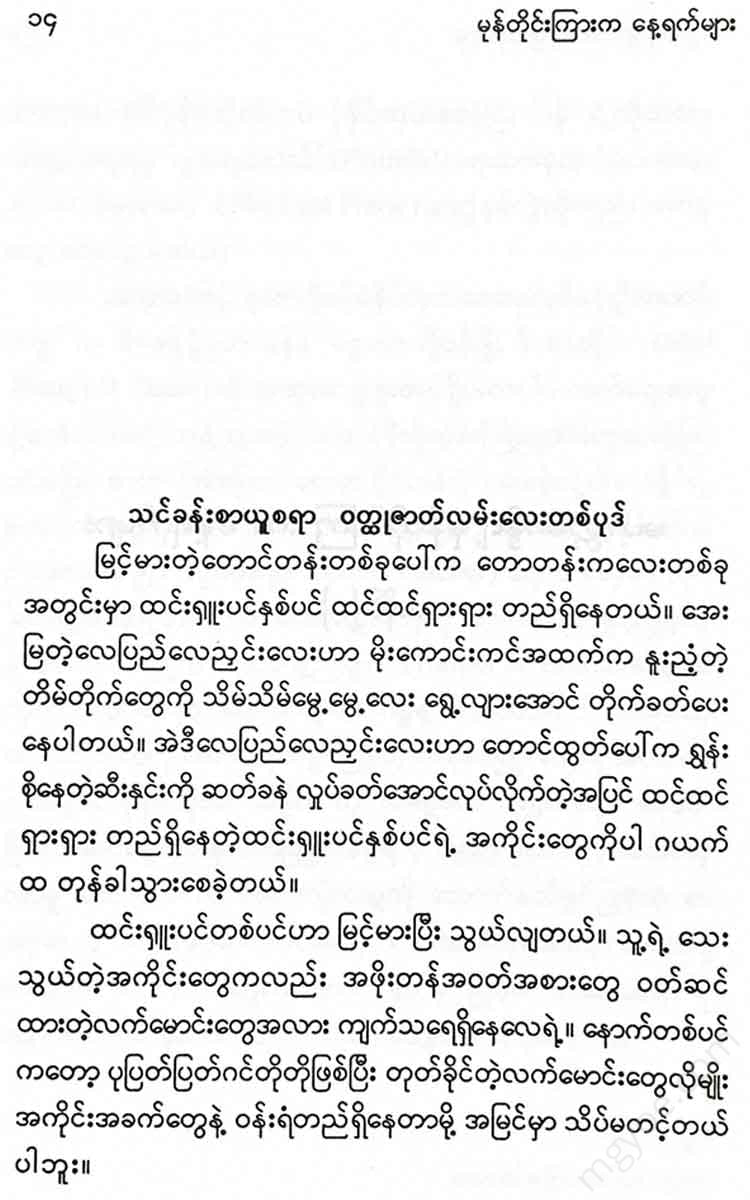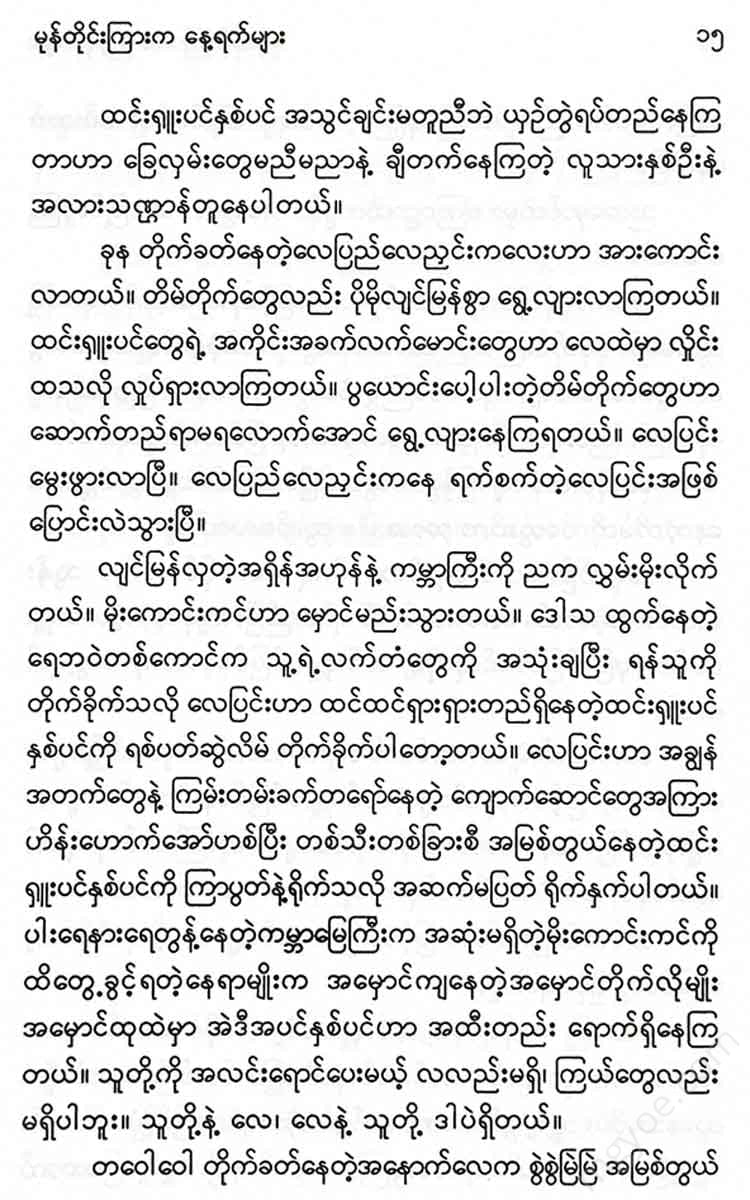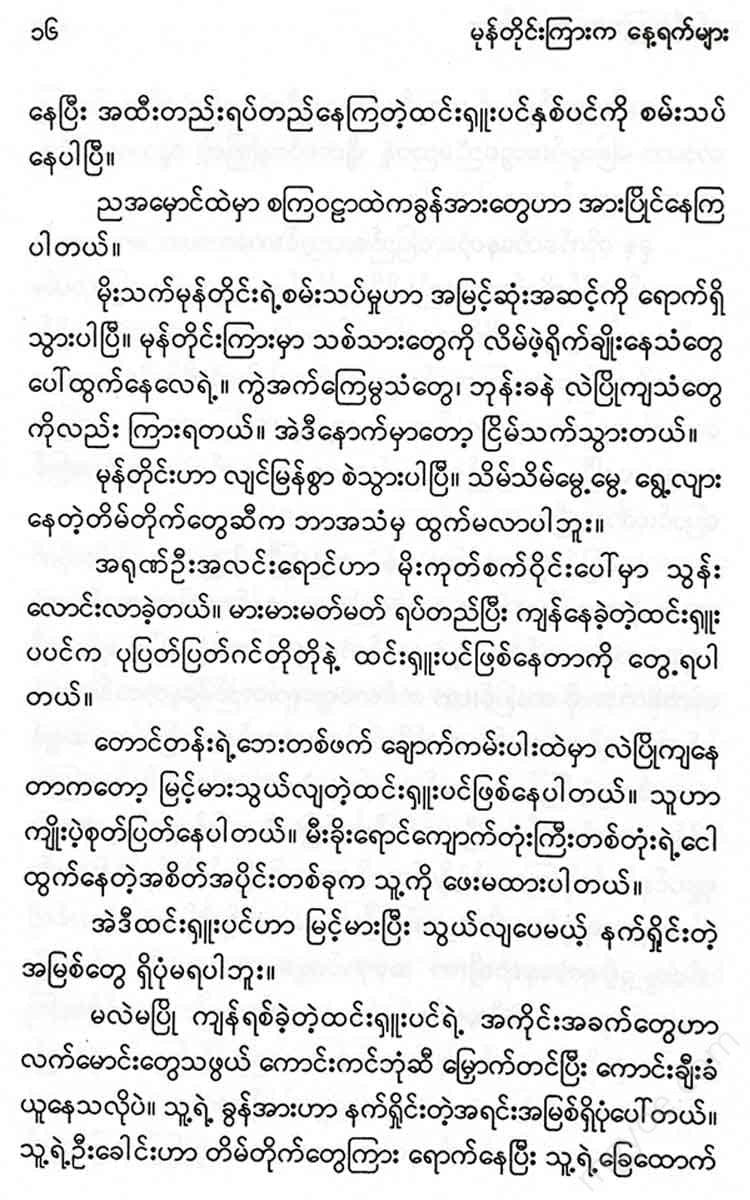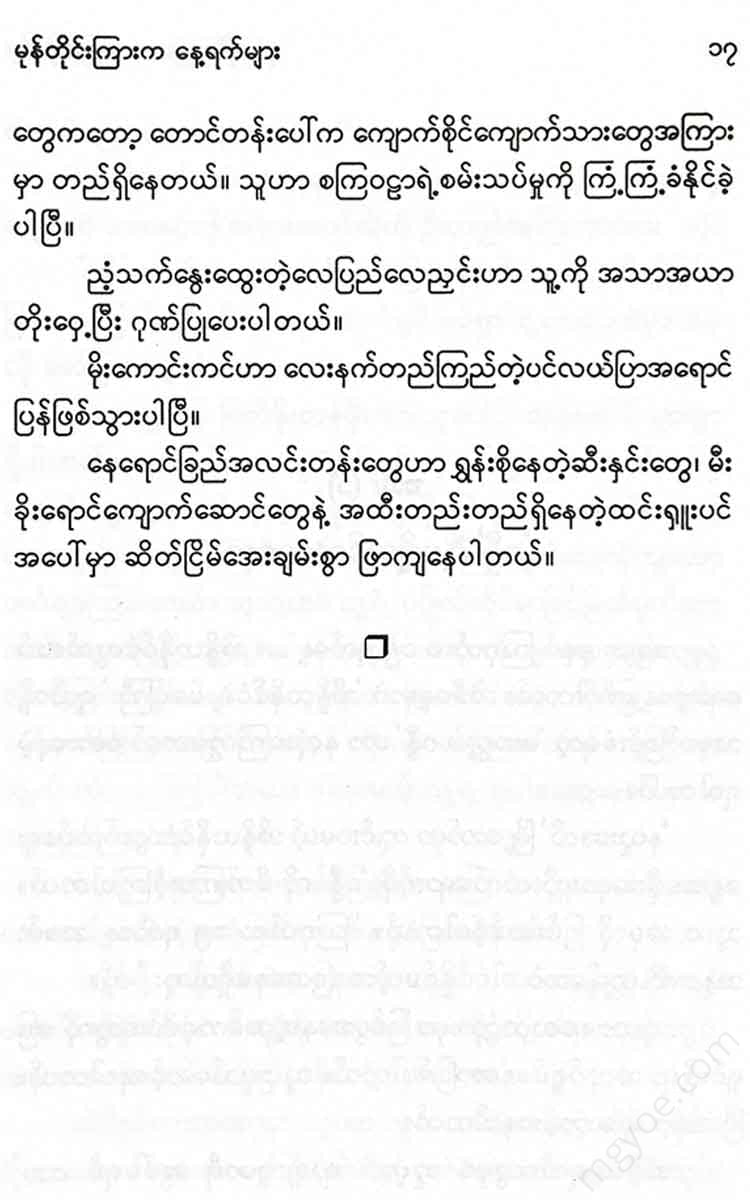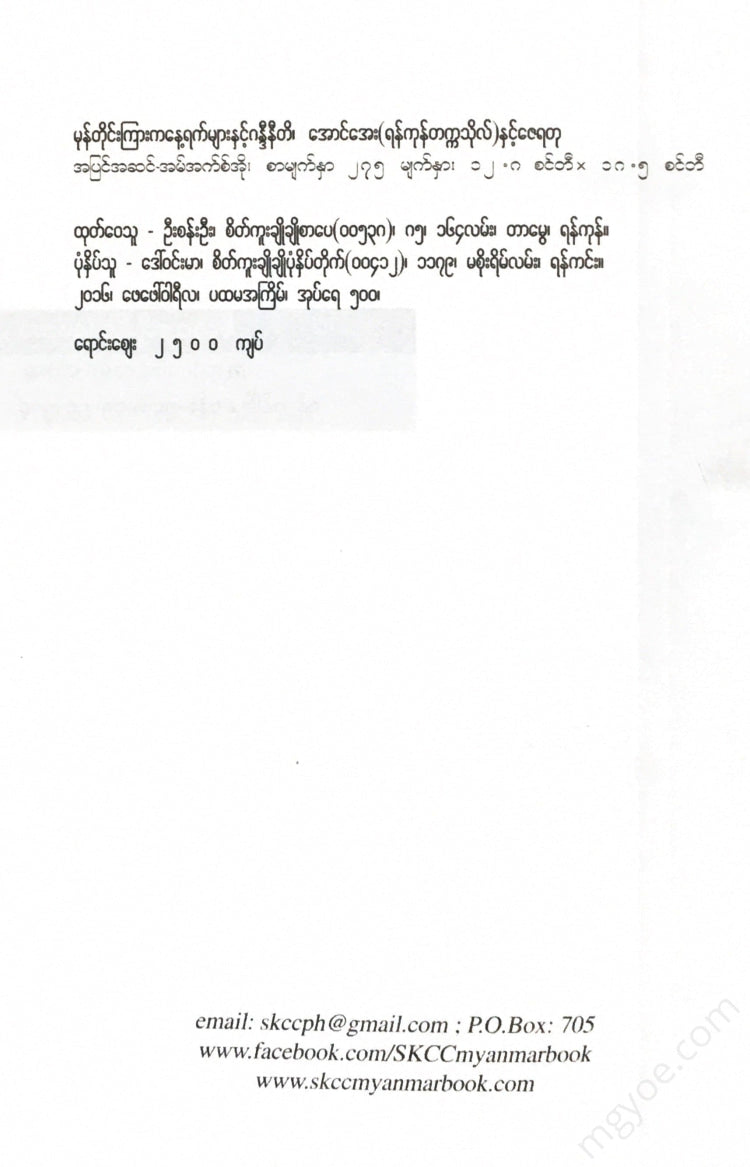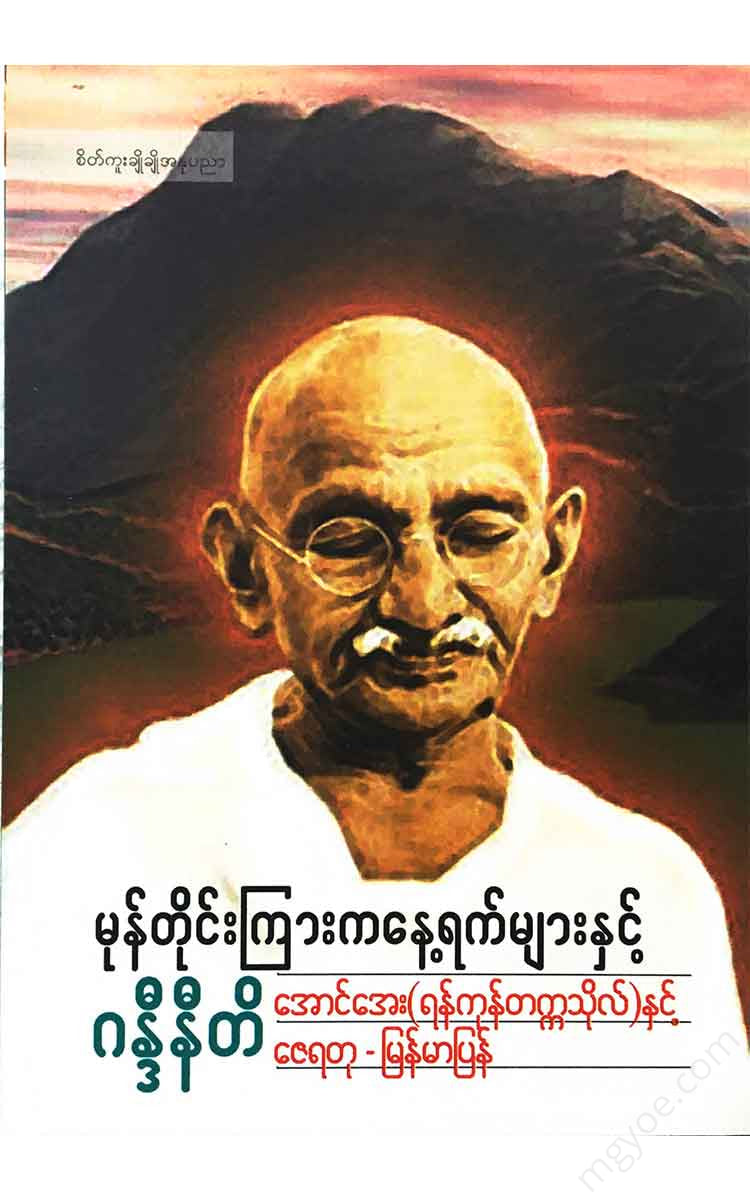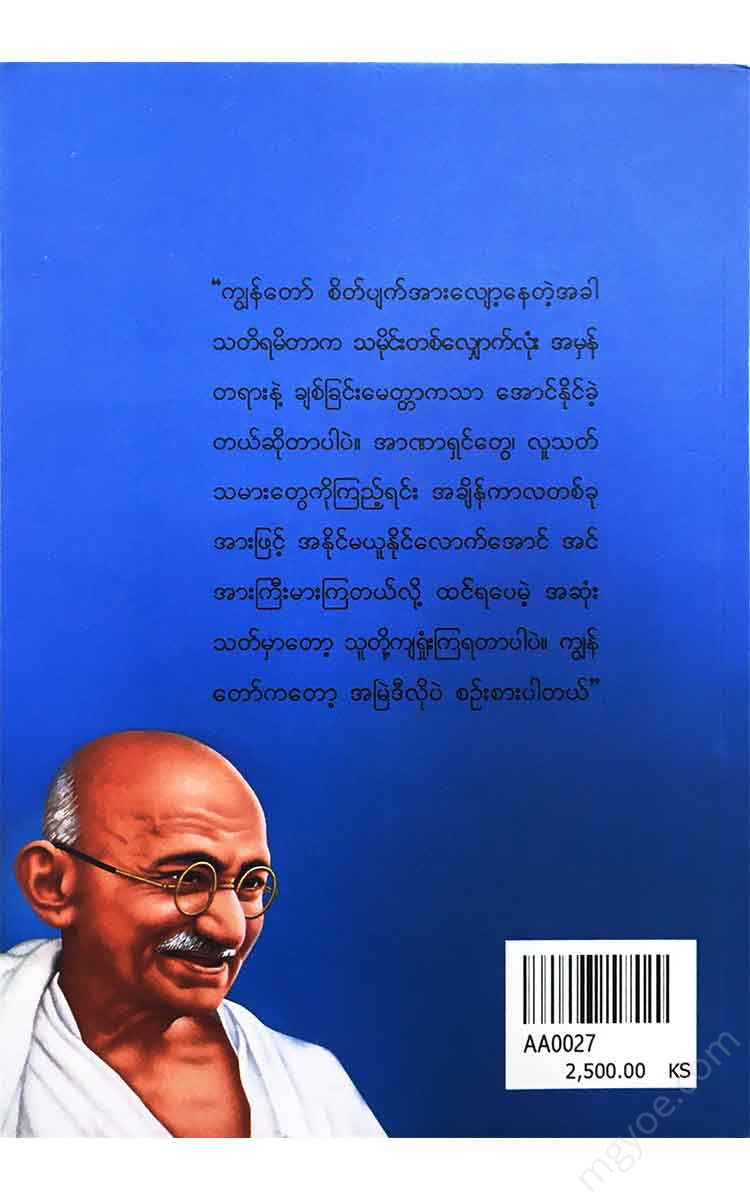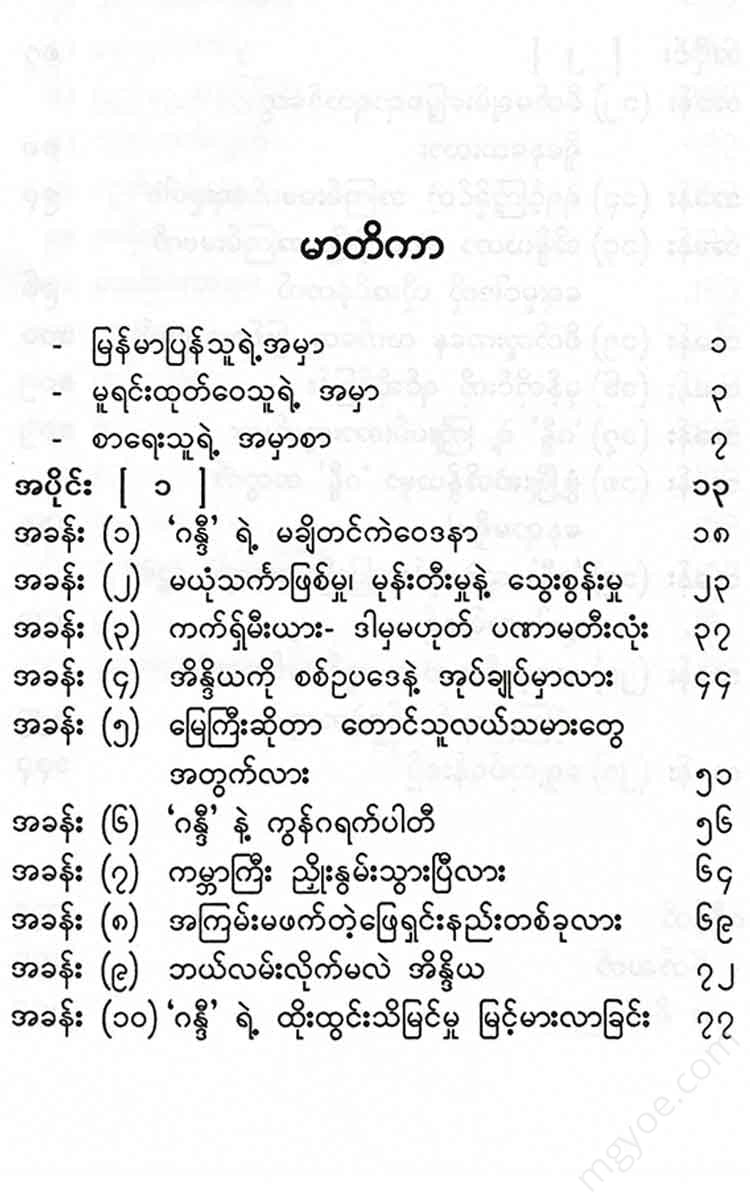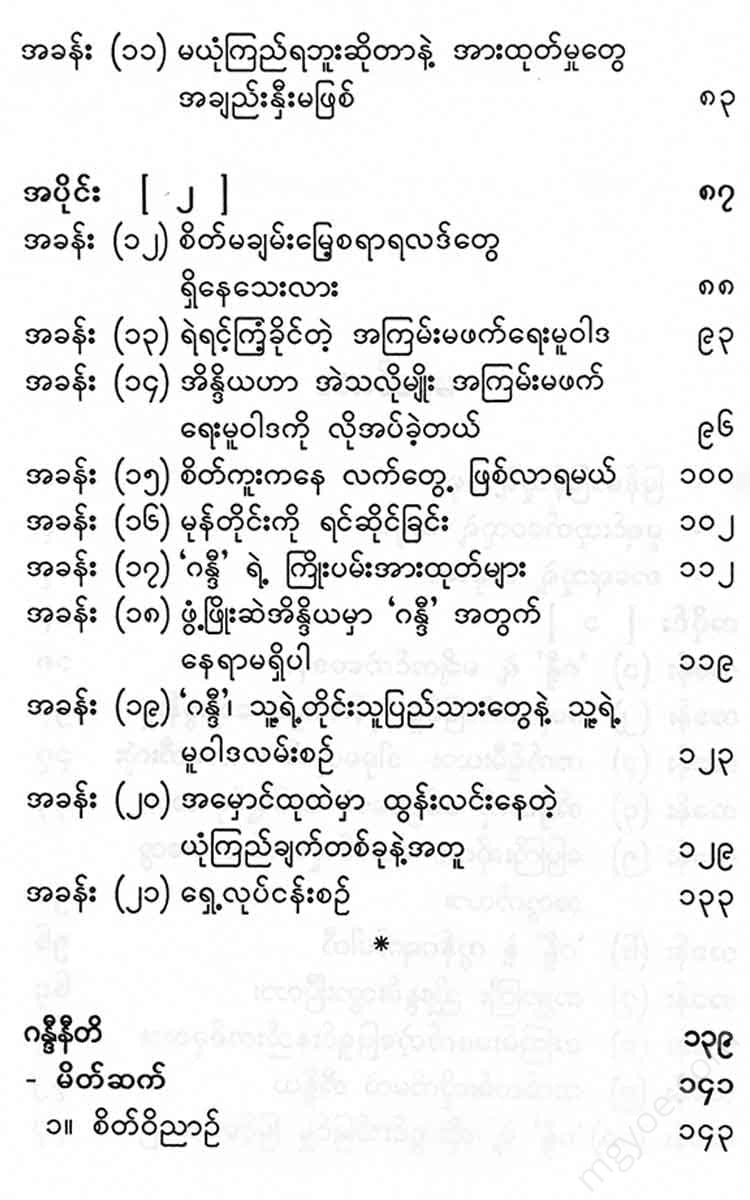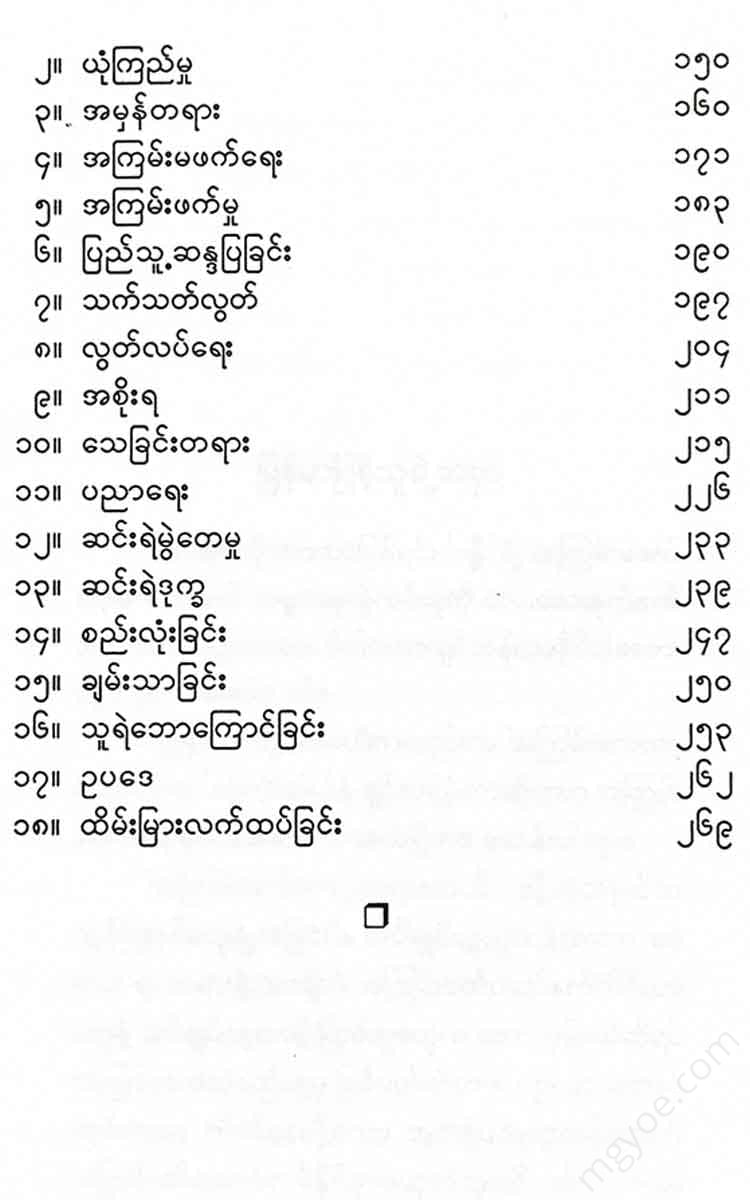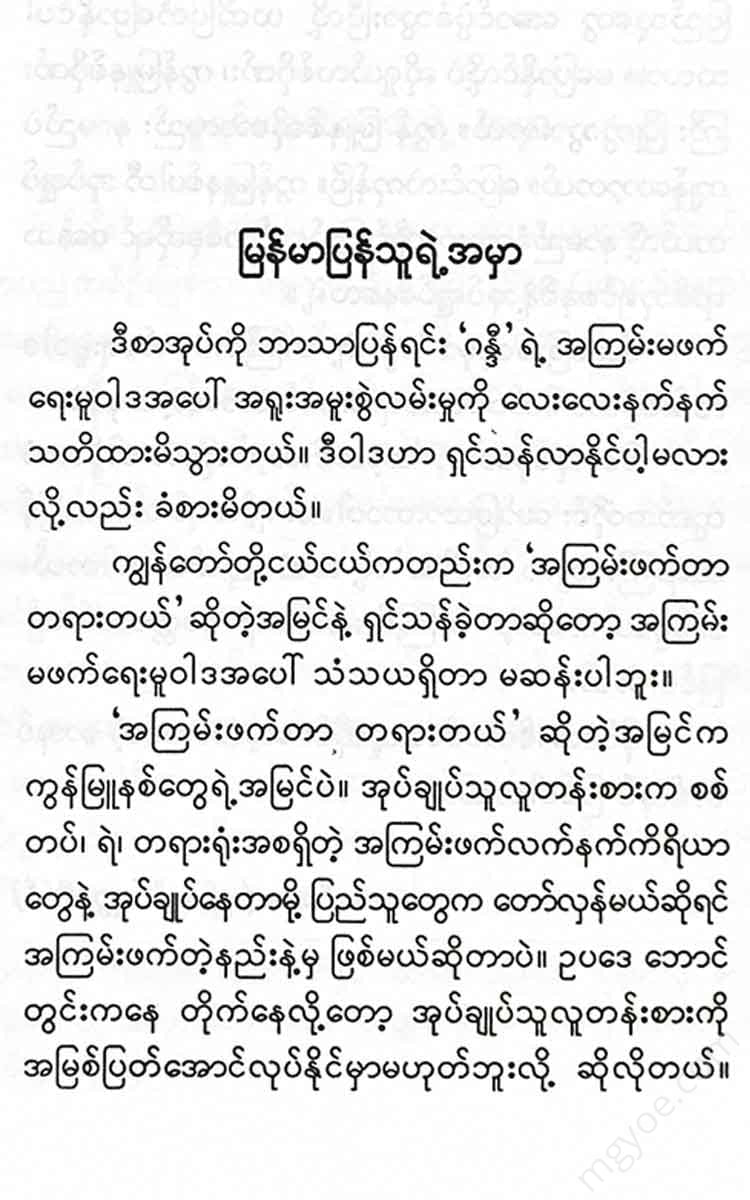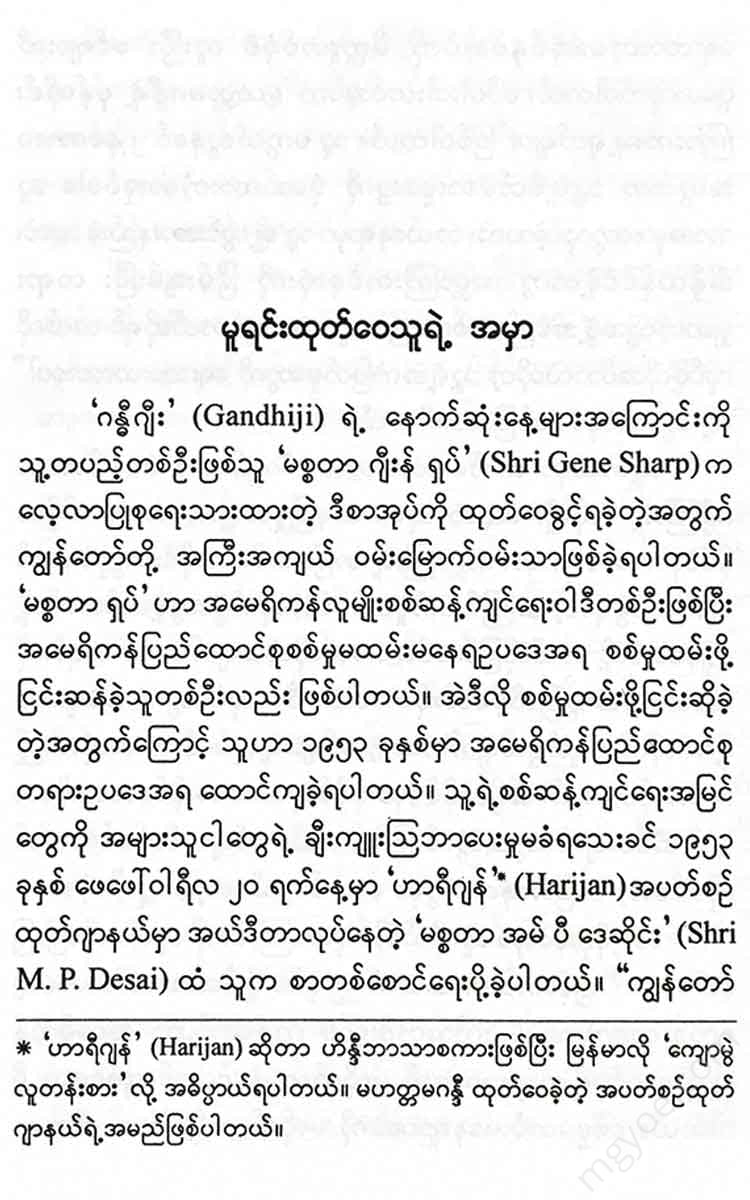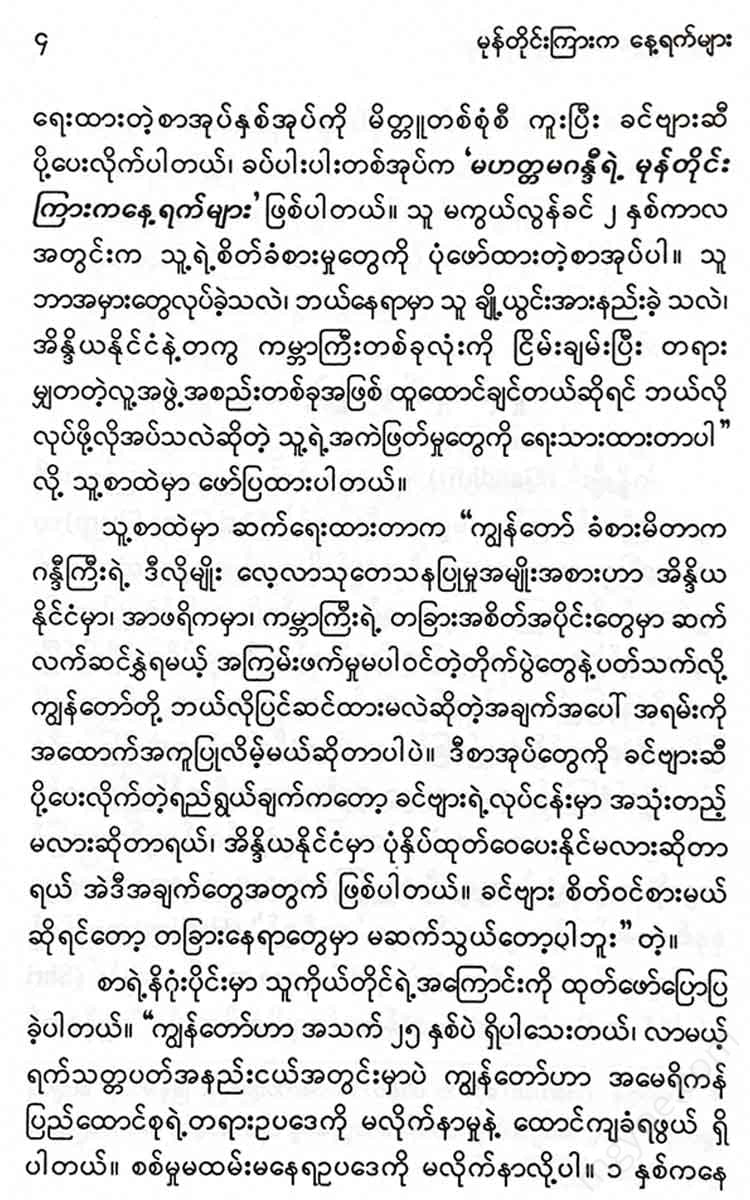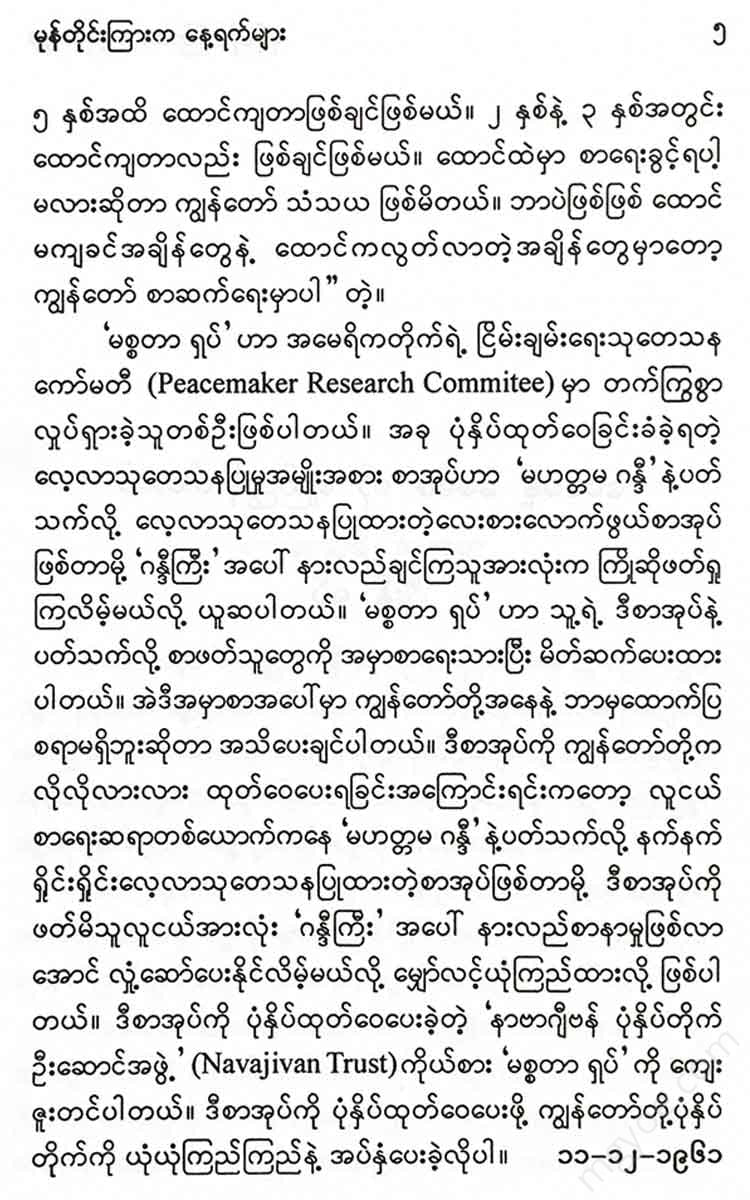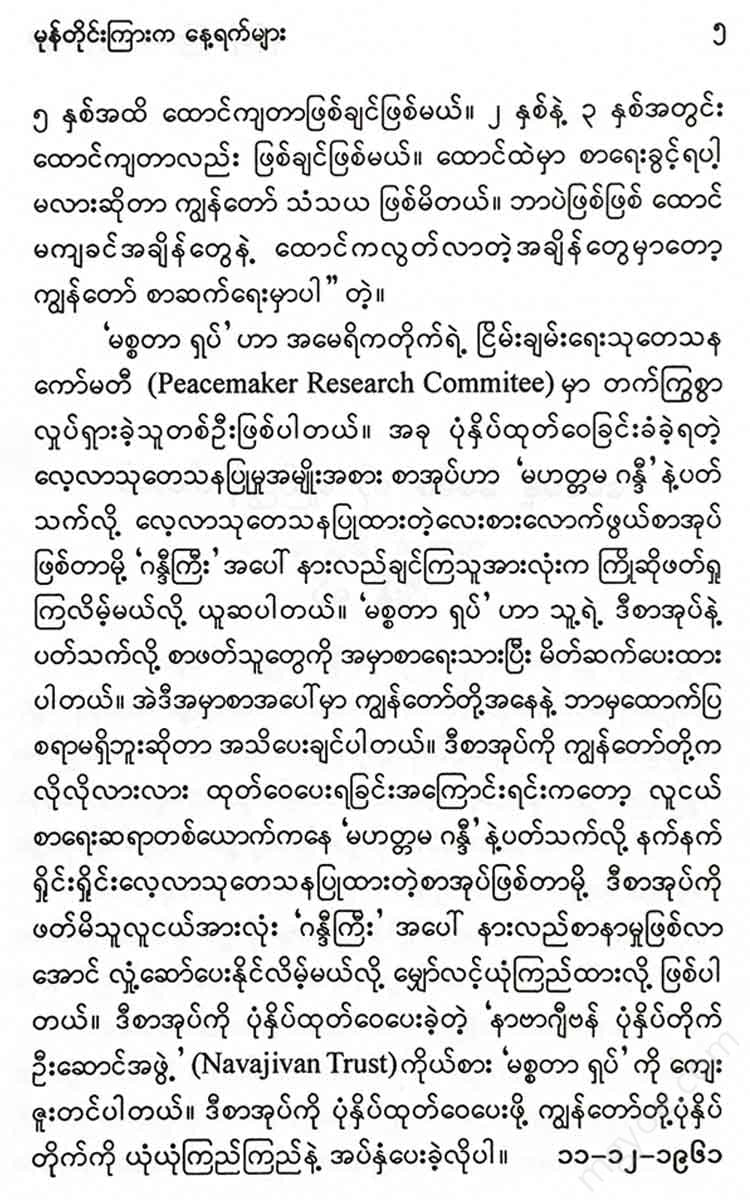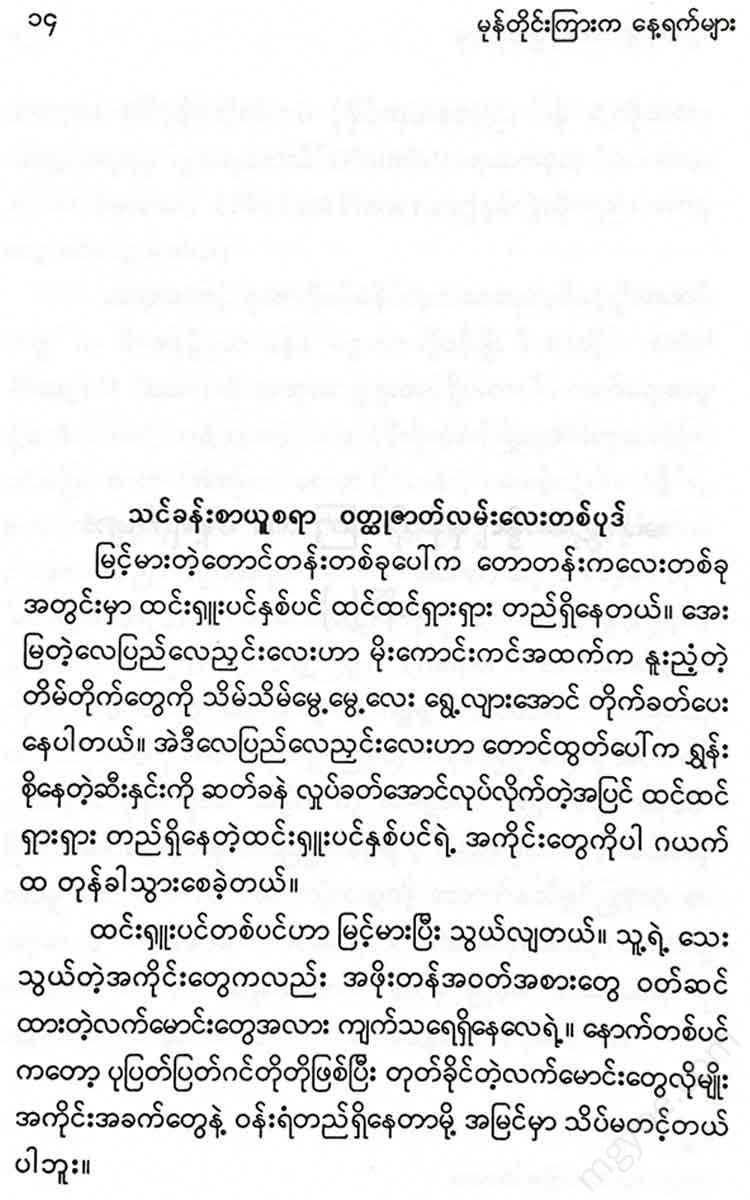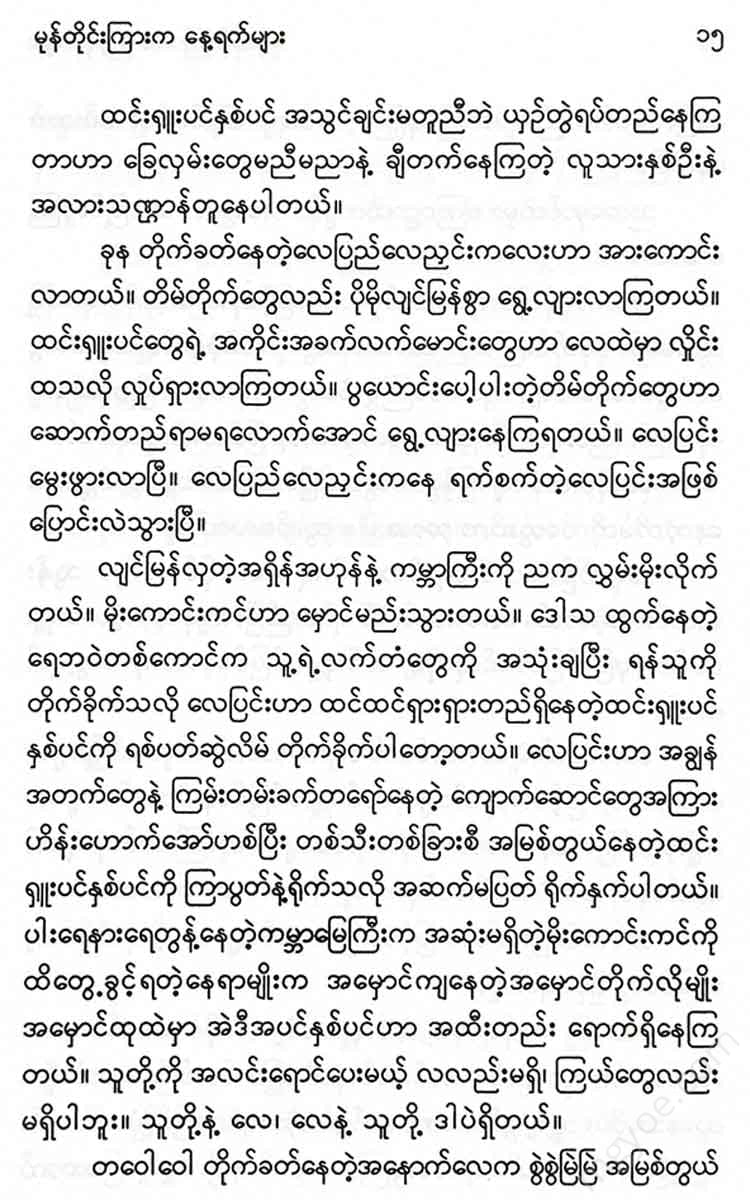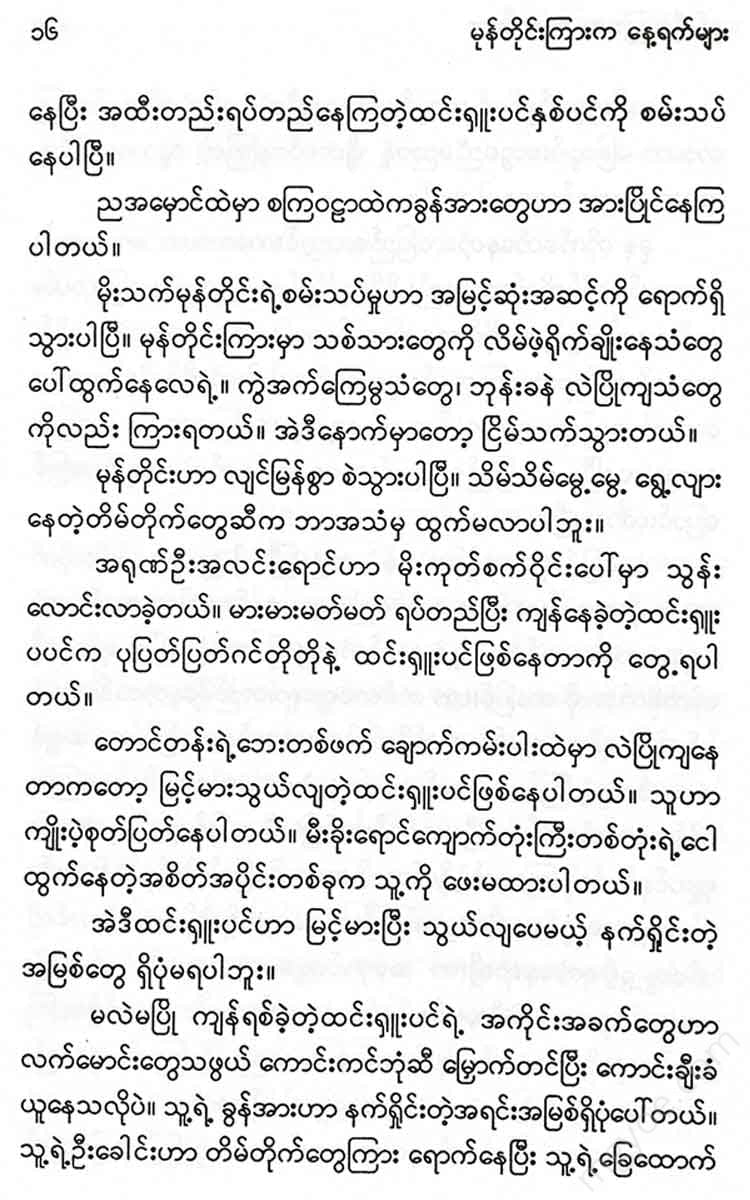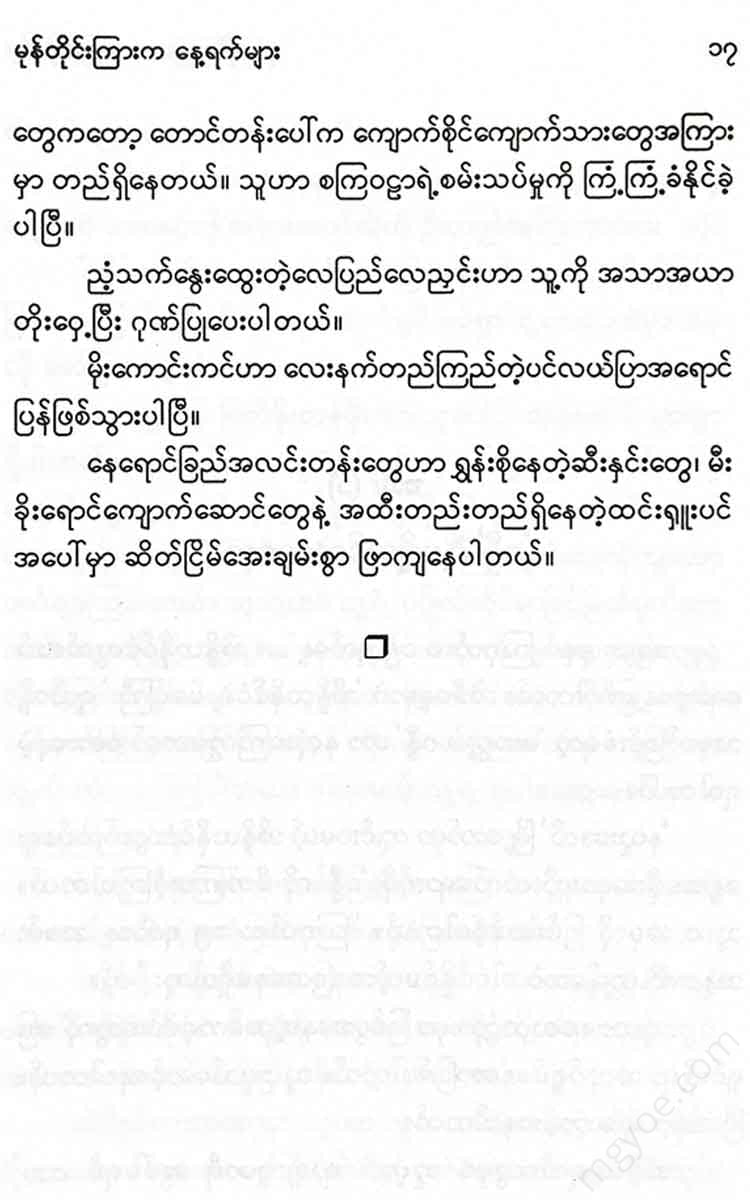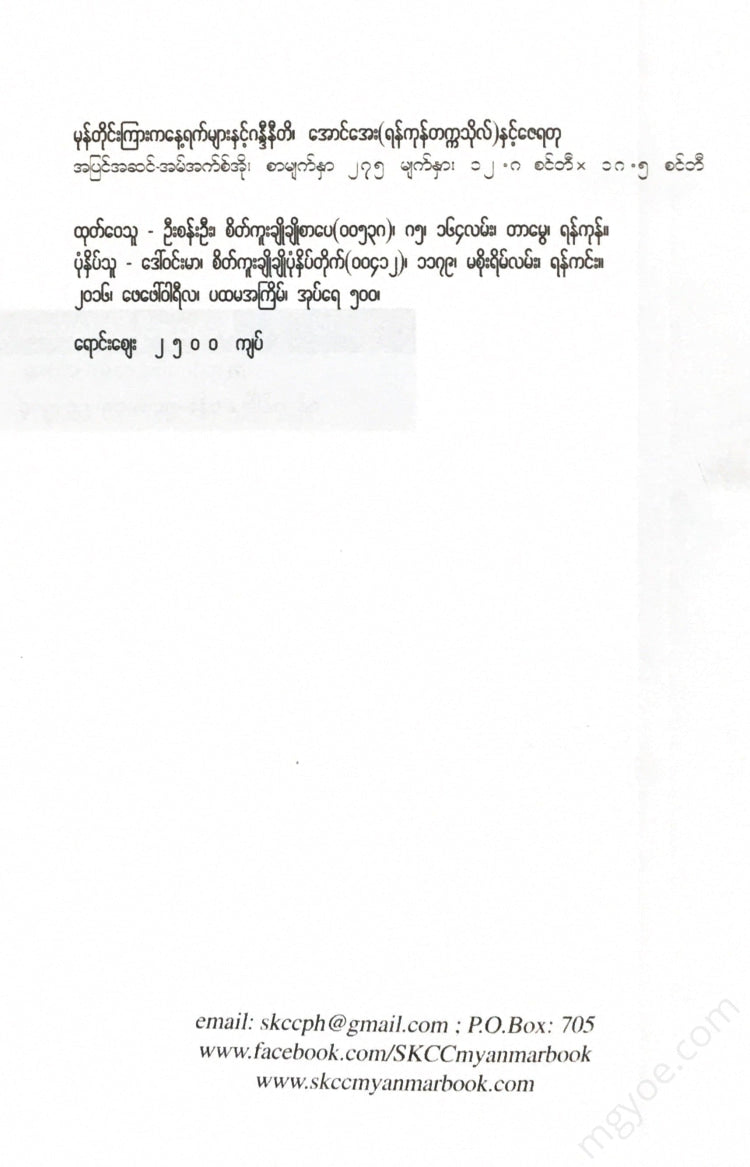စိတ်ကူးချိုချိုစာပေ
Aung Aye (Yangon University) - Gandhianism
Aung Aye (Yangon University) - Gandhianism
Couldn't load pickup availability
Chapter (1)
"Gandhi's excruciating pain"
August 15, 1947.... India's Independence Day. On that day, Mahatma Gandhi, who was called the "Father of India," was heartbroken.
Gandhi was invited to attend the Indian Independence Day celebrations in New Delhi. He declined, saying, "There is no way I can attend the celebrations on August 15."
He is busy trying to solve the riots that are happening in Calcutta. He is fasting. And he is praying.
During those days, he wrote to “Rajkumari Amrit Kaur” and included the following line:
"Am I doing something wrong, or are things really heading in the wrong direction?"
Gandhi was in despair. The reason for this is described in the book by author Louis Fisher as follows.
“There are millions of people who admire the Mahatma. The masses kiss his feet. Or rather, they kiss the dust of his footprints. They worship him. They reject his teachings. They recognize only his personal greatness and ignore his intrinsic qualities. They honor only the “shell” and reject the “indwelling.” They believe in him. But they do not believe in his principles.”
The lines written by "Louis Fisher" are about things that Gandhi did not like or dislike.
Gandhi's "excruciating pain" was etched in his heart because India could not understand him or heed his message.
During those years, he was a rising star in independent India. At the same time, during those years, he was searching for worldly truth. He pursued religion. He faced many struggles. Those were years of great hardship.
Gandhi's "moral weapon" proved to be very powerful. His followers practiced his methods in the midst of nonviolent struggles.
The Congress Party accepted his leadership and his policy of non-violence as a legitimate means of achieving political freedom. His saintliness and practical political activities earned him a huge following.
It was not right that when India was getting closer to independence and was about to be freed from British rule, those who had followed him should have abandoned him. Nehru and other Congress leaders were very close to him. Many of them loved him. It is really sad that a man like Nehru should have had a conflict with Gandhi and his non-violence policy. He too could not follow Gandhi. Due to lack of understanding and distrust, Gandhi's political associates went their separate ways.
Only a very small number of people understood his principles to some degree and devoted their lives to the struggle for truth, love, and a new society. In fact, if one can have unwavering faith in the principles of nonviolence and courageous confrontation, it will never weaken and has the power to move mountains. Now, there are only a handful of people who continue to adhere to those principles.
Most people do not understand this policy, and they are bitterly affected by destructive actions and future upheavals.
For months, Gandhi was deeply troubled. The India that came into being on August 15, 1947, was not the India of his dreams. Before that day, his people had walked the path of truth and love. Riots broke out all over the country. The farmers were still landless. Except for a change of government, India had not achieved true independence. It had lost its identity and was on a path that imitated the Western economic model. It had become a war state in a way. One way was the Congress way, the other was the Gandhi way. There were rumors that war was coming. At that time, World War II had just ended.
I think people have not yet realized that the path of violence cannot bring peace. The question arises: will humanity choose the path of violence and destroy itself? Or will it choose the path of love?
